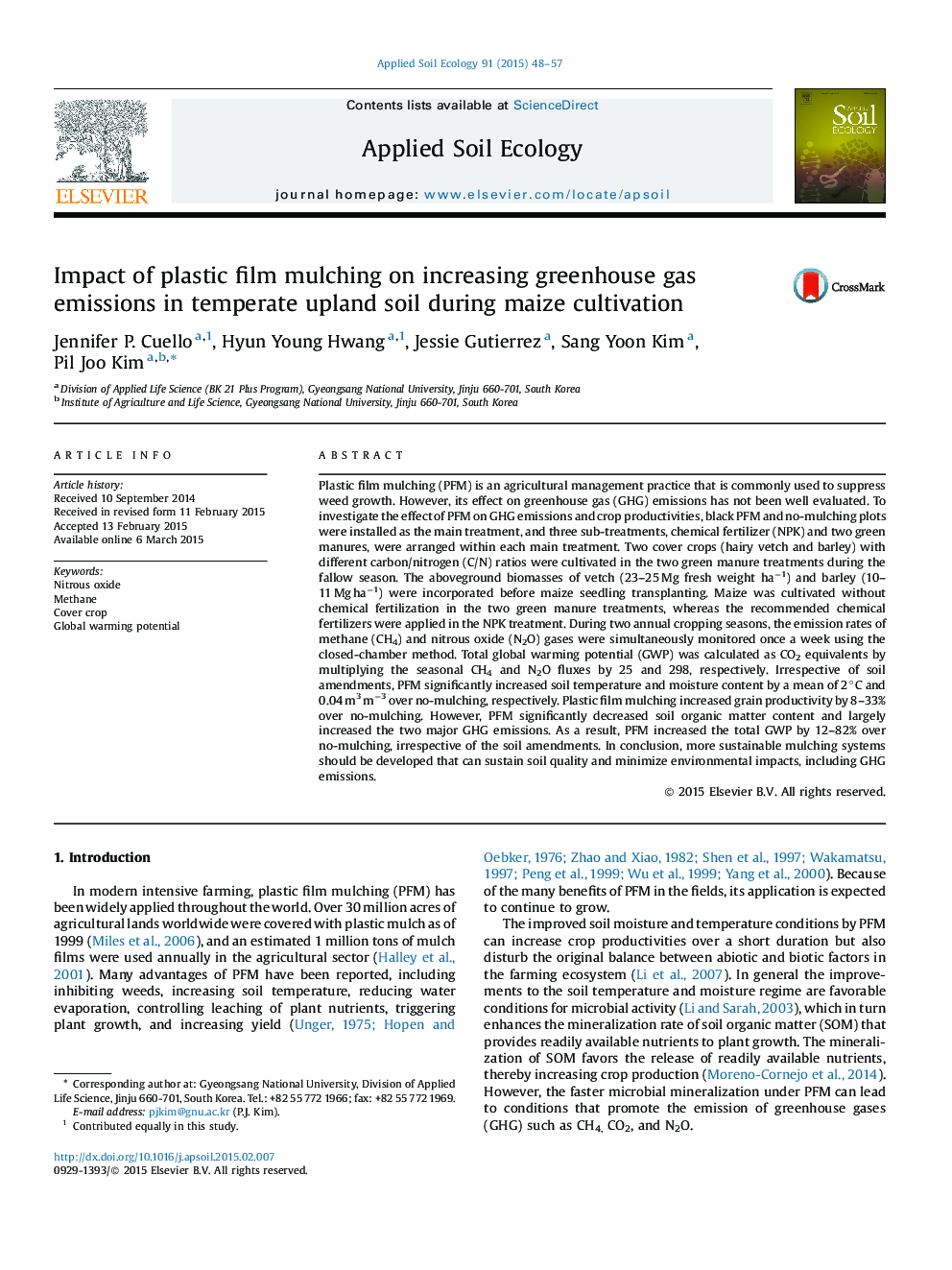| Article ID | Journal | Published Year | Pages | File Type |
|---|---|---|---|---|
| 4382018 | Applied Soil Ecology | 2015 | 10 Pages |
•Plastic film mulching was effective on increasing maize growth and yield.•Plastic film mulching improved soil temperature and moisture conditions.•Plastic film mulching significantly increased methane and nitrous oxide emission.•Plastic film mulching increased global warming potential.
Plastic film mulching (PFM) is an agricultural management practice that is commonly used to suppress weed growth. However, its effect on greenhouse gas (GHG) emissions has not been well evaluated. To investigate the effect of PFM on GHG emissions and crop productivities, black PFM and no-mulching plots were installed as the main treatment, and three sub-treatments, chemical fertilizer (NPK) and two green manures, were arranged within each main treatment. Two cover crops (hairy vetch and barley) with different carbon/nitrogen (C/N) ratios were cultivated in the two green manure treatments during the fallow season. The aboveground biomasses of vetch (23–25 Mg fresh weight ha−1) and barley (10–11 Mg ha−1) were incorporated before maize seedling transplanting. Maize was cultivated without chemical fertilization in the two green manure treatments, whereas the recommended chemical fertilizers were applied in the NPK treatment. During two annual cropping seasons, the emission rates of methane (CH4) and nitrous oxide (N2O) gases were simultaneously monitored once a week using the closed-chamber method. Total global warming potential (GWP) was calculated as CO2 equivalents by multiplying the seasonal CH4 and N2O fluxes by 25 and 298, respectively. Irrespective of soil amendments, PFM significantly increased soil temperature and moisture content by a mean of 2 °C and 0.04 m3 m−3 over no-mulching, respectively. Plastic film mulching increased grain productivity by 8–33% over no-mulching. However, PFM significantly decreased soil organic matter content and largely increased the two major GHG emissions. As a result, PFM increased the total GWP by 12–82% over no-mulching, irrespective of the soil amendments. In conclusion, more sustainable mulching systems should be developed that can sustain soil quality and minimize environmental impacts, including GHG emissions.
